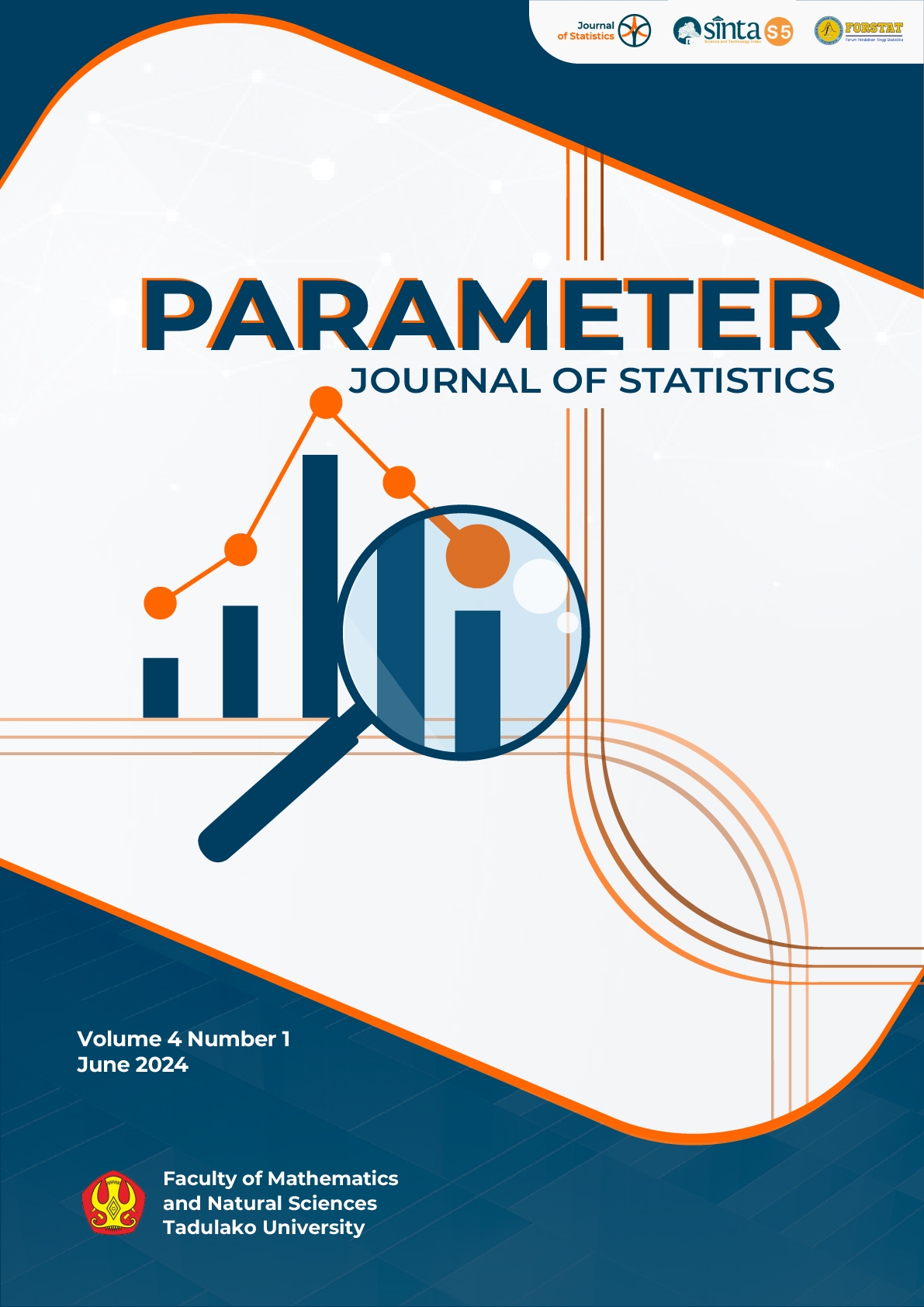Main Article Content
Abstract
The phenomenon of Heatwaves has struck several countries across the globe due to climate change. This climate change has led to an increase in greenhouse gas emissions surpassing the limits set by the IPCC Fourth Assessment Report GWPs. This study utilizes the Support Vector Machine (SVM) classification method to identify and categorize greenhouse gas emission data from 1990 to 2020 using four kernels function such as linear, polynomial, radial basis function (RBF), and sigmoid. The SVM method demonstrates excellent performance in constructing classification models with a polynomial kernel function. This is evidenced by high values of training accuracy, testing accuracy, and F1-score, accompanied by short training and testing analysis times. Successively, these values are 97.39%, 97.69%, 96.82%, 0.59 seconds, and 0.22 seconds.
Keywords
Article Details

This work is licensed under a Creative Commons Attribution-ShareAlike 4.0 International License.
References
- Adnan, A., Yolanda, A. M., Erda, G., Ell, G. N., & & Indra, Z. (2023). The Comparison of Accuracy on Classification Climate Change Data with Logistic Regression. SinkrOn : Jurnal Dan Penelitiak Teknik Informatika.
- Anna, P. O., Wilandari, Y., & Ispriyanti, D. (2014). Penerapan Metode SVM Pada Data Akreditasi Sekolah Dasar Di Kabupaten Magelang. Jurnal Gaussian, 3(8), 811–820.
- Bintang Girik Allo, C., Sandy Ade Putra, L., Roona Paranoan, N., & Vincentius, A. G. (2023). Comparing Logistic Regression and Support Vector Machine in Breast Cancer Problem.
- Crippa, M., Guizzardi, D., Pagani, F., Banja, M., Muntean, M., Schaaf, E., Becker, W., Monforti-Ferrario, F., Quadrelli, R., Risquez Martin, A., Taghavi-Moharamli, P., Köykkä, J., Grassi, G., Rossi, S., Melo, J., Oom, D., Branco, A., San-Miguel, J., & Vignati, E. (2023). GHG emissions of all world countries. In Publications Office of the European Union (Issue KJ-NA-31-658-EN-N (online),KJ-NA-31-658-EN-C (print)).
- ibm. (2024). What is supervised learning? https://www.ibm.com/topics/supervised-learning#:~:text=the next step-,What is supervised learning%3F,data or predict outcomes accurately
- KEMDIKBUD. (2024). Klasifikasi. Kbbi.Kemdikbud.Go.Id. https://kbbi.kemdikbud.go.id/entri/klasifikasi
- Pasaribu, I., Lumbanraja, F. R., Shofiana, D. A., & Aristoteles, A. (2021). Klasifikasi Kejadian Hipertensi Dengan Metode Support Vector Machine (Svm) Menggunakan Data Puskesmas Di Kota Bandar Lampung. Jurnal Pepadun, 2(2), 183–190. https://doi.org/10.23960/pepadun.v2i2.56
- Prasetyo, E. (2012). Data mining konsep dan aplikasi menggunakan MATLAB (Nikodemus (ed.); Data minin).
- Pratiwi, N., & Setyawan, Y. (2021). Analisis Akurasi Dari Perbedaan Fungsi Kernel Dan Cost Pada Support Vector Machine Studi Kasus Klasifikasi Curah Hujan Di Jakarta. Journal of Fundamental Mathematics and Applications (JFMA), 4(2), 203–212. https://doi.org/10.14710/jfma.v4i2.11691
- Rizwan. (2023). Mastering support vector machine (SVMs). Medium.Com. https://medium.com/@rizwan44007/mastering-support-vector-machines-svms-f45c0d9eb33c
- Setiawati, S. C. I. (2023). Sepanjang 2023 Dunia Panas Bak Neraka, Ini Penyebabnya! https://www.cnbcindonesia.com/research/20230916115625-128-473012/sepanjang-2023-dunia-panas-bak-neraka-ini-penyebabnya
- Steinwart, I., & Christmann, A. (2008). Support vector machines. Wiley Interdisciplinary Reviews: Computational Statistics, 1. https://api.semanticscholar.org/CorpusID:661123
- Vapnik, & N., V. (1995). The Nature of Statistical Learning. In Theory (p. 334).
- Yolanda, A., Adnan, A., Goldameir, N., & Rizalde, F. (2023). The comparison of accuracy on classification data with machine learning algorithms (Case study: Human development index by regency/city in Indonesia 2020). https://doi.org/10.1063/5.0118720
